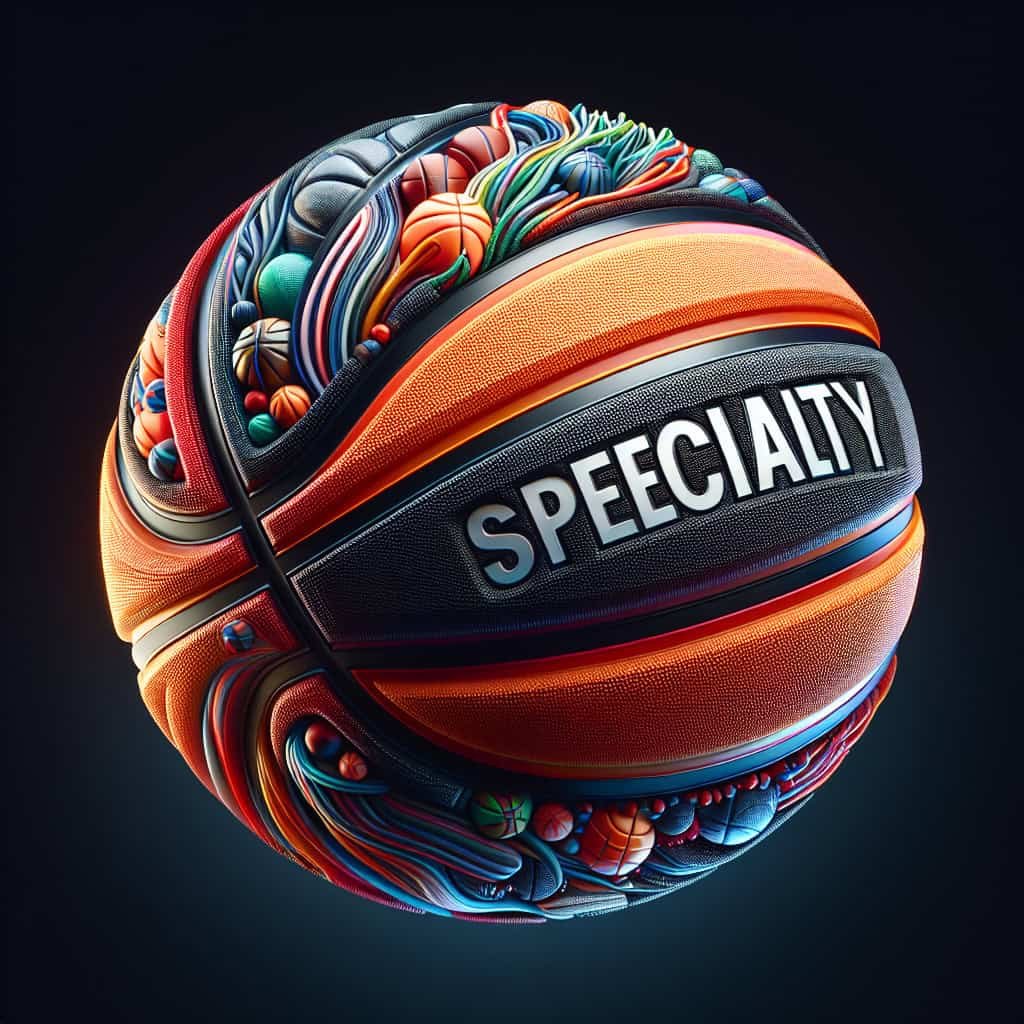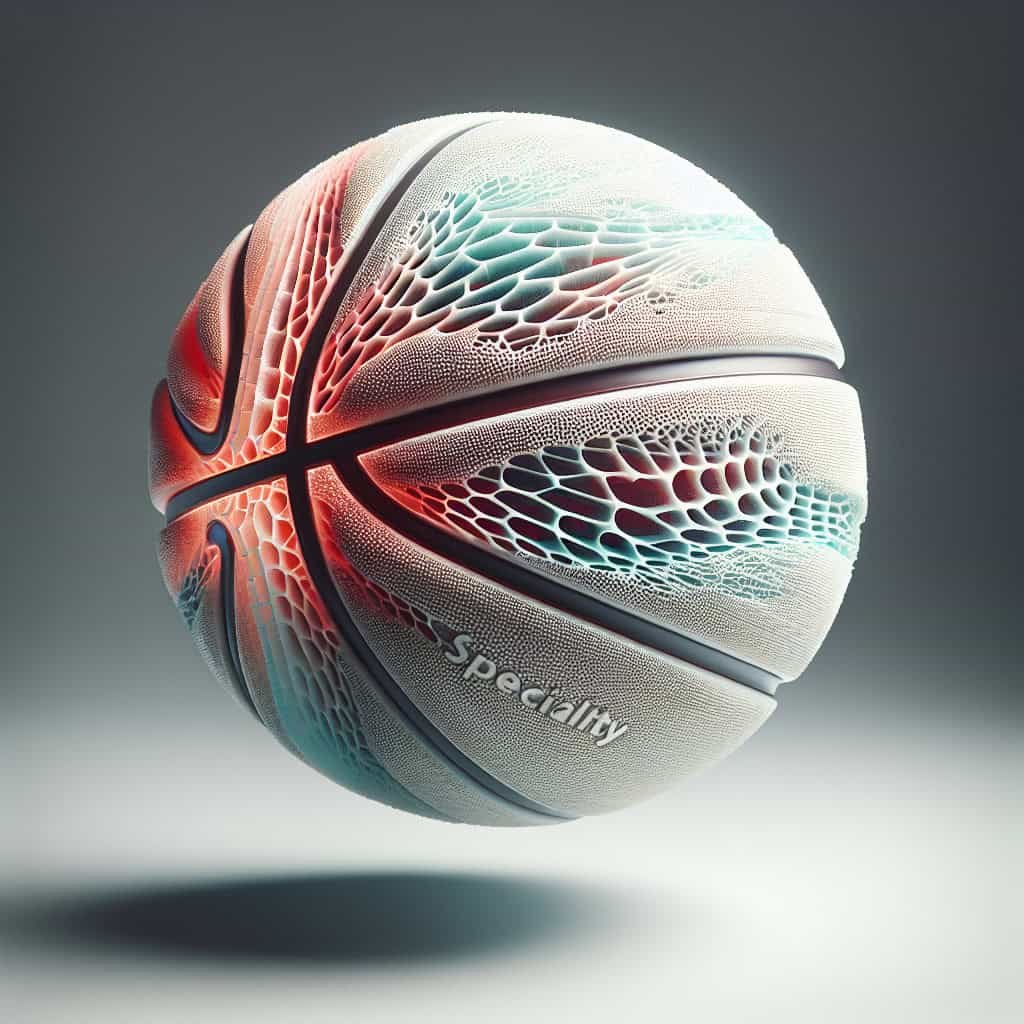Have you ever wondered what sets specialty basketballs apart from regular ones? Well, in this article, we will explore the intriguing world of specialty basketballs and shed light on how they differ from their conventional counterparts. Get ready to discover the unique features and benefits of these specialized balls that can elevate your game to a whole new level. Whether you’re an aspiring basketball player or simply a curious enthusiast, this article is sure to provide you with valuable insights into the fascinating realm of specialty basketballs. So, let’s jump right in and uncover the secrets behind these game-changing spheres.
Overview of Specialty Basketballs
Defining specialty basketballs
Specialty basketballs refer to a specific category of basketballs that are designed for specific purposes. These basketballs are tailored to meet the unique requirements and preferences of players and are distinct from the traditional basketballs used in regular play. They often feature specialized materials, textures, and designs that enhance performance and offer a different playing experience.
History of specialty basketballs
The concept of specialty basketballs dates back to the early 1980s when manufacturers recognized the diverse needs and preferences of players and began experimenting with different ball designs. The introduction of specialty basketballs revolutionized the game by providing players with options that catered to their specific playing styles and preferences. Since then, specialty basketballs have continued to evolve, incorporating advanced technologies and innovative features to enhance performance.
Different Types of Specialty Basketballs
Indoor specialty basketballs
Indoor specialty basketballs are specifically designed for indoor use on hardwood courts. These basketballs typically have a soft, tacky cover that provides a better grip and control, allowing players to execute intricate moves with precision. They also have a consistent bounce and are less likely to be affected by dust or moisture on indoor courts. The construction of indoor specialty basketballs ensures optimal performance and durability in indoor environments.
Outdoor specialty basketballs
Outdoor specialty basketballs are engineered to withstand the harsh conditions and rough surfaces commonly found in outdoor basketball courts. These basketballs are constructed with durable materials, such as synthetic leather or rubber, that can withstand the abrasive nature of outdoor play. They have a tougher cover and are designed to resist wear and tear, making them suitable for prolonged outdoor use. Outdoor specialty basketballs also often feature deeper grooves and a textured surface for improved grip on rough surfaces.
Training specialty basketballs
Training specialty basketballs are specifically designed to help players improve their skills and enhance their performance on the court. These basketballs come in various sizes and weights, catering to different age groups and skill levels. Some training basketballs have added weight or raised seams to challenge players and improve their strength and coordination. Others may have markings or visual cues to assist with shooting or dribbling techniques. Training specialty basketballs are a valuable tool for players looking to refine their skills and reach their full potential.

Features of Specialty Basketballs
Material
The choice of material used in specialty basketballs plays a crucial role in their performance and durability. Different materials offer varying levels of grip, bounce, and overall feel. High-quality specialty basketballs are often made from genuine leather or high-grade synthetic materials. Genuine leather basketballs offer a superior feel and grip but require more maintenance and are typically more expensive. Synthetic leather and rubber basketballs, on the other hand, provide excellent durability and performance at a more affordable price point.
Grip and texture
The grip and texture of specialty basketballs greatly influence a player’s control and handling of the ball. Specialty basketballs are designed to provide superior grip, allowing players to maintain control even during intense gameplay. The grip is achieved through various means, such as pebbled surfaces, deep channels, or specialized textures. These features ensure that the ball stays secure in the player’s hand, preventing slips and improving overall ball handling.
Weight and size
Specialty basketballs come in a range of sizes and weights to accommodate players of different age groups and skill levels. Regulation-sized basketballs, commonly used in professional leagues, have a diameter of 29.5 inches and weigh approximately 22 ounces. However, specialty basketballs for younger players or skill-specific training may be smaller and lighter. Choosing the right weight and size is essential for proper technique development and skill progression.
Benefits of Using Specialty Basketballs
Improved performance
One of the primary benefits of using specialty basketballs is the potential for improved performance on the court. The specialized design and features of these basketballs enhance shooting accuracy, ball control, and overall handling. The improved grip and texture of specialty basketballs allow players to maintain control even in challenging situations, enabling more precise passes, dribbles, and shots. By using a basketball tailored to their needs, players can optimize their performance and elevate their game to new heights.
Enhanced control and handling
Specialty basketballs provide players with enhanced control and handling capabilities. The specialized features, such as deeper channels or textured surfaces, offer improved grip that promotes better ball control. With enhanced control, players can confidently execute various moves, including crossovers, spins, and behind-the-back passes. The increased control and handling capabilities provided by specialty basketballs give players a competitive edge and boost their confidence on the court.
Reduced risk of injuries
Using a specialty basketball can also help reduce the risk of injuries during gameplay. The superior grip and texture of these basketballs allow players to maintain control while minimizing the chances of accidental slips or turnovers. This reduced risk of losing control and mishandling the ball can prevent injuries caused by sudden falls or collisions. Additionally, the construction and durability of specialty basketballs ensure that they can withstand intense gameplay, reducing the likelihood of the ball bursting or losing shape during a game.

Limitations of Specialty Basketballs
Higher cost
One of the primary limitations of specialty basketballs is their higher cost compared to regular basketballs. Due to their specialized features and superior quality, specialty basketballs often come with a higher price tag. While they offer tangible benefits and improved performance, players need to consider their budget when investing in a specialty basketball. However, it is important to note that the durability and performance of these basketballs can outweigh the initial cost, making them a valuable long-term investment for serious players.
Limited availability
Another limitation of specialty basketballs is their limited availability compared to regular basketballs. Since specialty basketballs are designed for specific purposes, they may not be as widely stocked in sporting goods stores compared to regular basketballs that cater to a broader market. However, specialty basketballs are readily available online from various retailers and manufacturers, making them accessible to players across different regions. Players may need to research and explore online options to find the specific specialty basketball that suits their needs and preferences.
How Specialty Basketballs Differ from Regular Basketballs
Design and appearance
Specialty basketballs differ from regular basketballs in terms of design and appearance. Regular basketballs typically have a standard orange color with black stripes, while specialty basketballs come in a variety of colors, patterns, and designs. Some specialty basketballs may feature bold graphics or unique patterns that make them visually appealing and distinctive. The different designs and appearances of specialty basketballs allow players to express their individuality and personal style on the court.
Intended usage
The primary difference between specialty basketballs and regular basketballs lies in their intended usage. Regular basketballs are designed for general play in various settings, including both indoor and outdoor courts. On the other hand, specialty basketballs are tailored for specific purposes, such as indoor play, outdoor play, or training. Each type of specialty basketball is engineered to provide optimal performance and durability in its intended environment, enhancing the player’s experience and skill development.

Choosing the Right Specialty Basketball
Determining your needs
When selecting a specialty basketball, it is crucial to consider your specific needs and requirements. Assess the playing environment, such as whether it will be predominantly indoor or outdoor, as it will influence the type of specialty basketball you need. Consider your playing style, skill level, and position on the court to determine the features that are most important to you. For example, if you are a guard who focuses on ball handling and quick movements, a specialty basketball with enhanced grip and control may be ideal for you.
Considering skill level
The skill level of a player is an important factor to consider when choosing a specialty basketball. Different basketballs are designed to accommodate players of different skill levels, from beginners to professionals. For beginners or younger players, it may be beneficial to start with a basketball that is lighter and smaller in size, allowing them to develop the fundamentals of the game more comfortably. As players progress and develop their skills, they can transition to heavier and regulation-sized specialty basketballs to further improve their technique and performance.
Seeking expert advice
If you are unsure about which specialty basketball to choose, seeking expert advice can be invaluable. Coaches, trainers, or experienced players can provide valuable insights and recommendations based on their knowledge and experience. They can help identify the specific features and characteristics that would benefit you the most and guide you towards the right specialty basketball for your needs. Don’t hesitate to reach out to basketball experts who can provide personalized recommendations and assist you in making an informed decision.
Specialty Basketball Brands and Models
Popular brands
Several brands specialize in manufacturing high-quality specialty basketballs. Some of the most popular and reputable brands in the market include Spalding, Wilson, Nike, Molten, and Under Armour. These brands have established themselves as leaders in the industry, consistently delivering basketballs that meet the demands of players at all levels. When considering a specialty basketball, exploring offerings from these popular brands can provide a wide range of options and ensure you are selecting from trusted and reliable manufacturers.
Notable models
Within each brand, there are several notable models of specialty basketballs that have gained recognition for their performance and features. The Spalding NBA Official Game Ball, Wilson Evolution, Nike Elite Championship, and Molten GG7X are among the most highly regarded specialty basketball models available. These models are often used in professional leagues or are endorsed by basketball icons, assuring players of their quality and performance. Exploring the features and specifications of these notable models can help players narrow down their options and make an informed choice.

Caring for Specialty Basketballs
Cleaning and maintenance
To maximize the lifespan and performance of a specialty basketball, proper cleaning and maintenance are essential. Cleaning the basketball regularly using a mild soap or detergent and warm water can help remove dirt and sweat residue that accumulate during gameplay. Avoid using harsh chemicals or abrasive cleaners that can damage the ball’s surface. After cleaning, wiping the basketball dry with a clean cloth is advised to prevent water damage. Additionally, regular inspections for any signs of wear or damage should be conducted, and any issues should be addressed promptly to maintain optimal performance.
Proper storage
Storing specialty basketballs properly is crucial to ensure their longevity. When not in use, basketballs should be stored in a cool and dry place, away from direct sunlight or extreme temperatures. Exposure to excessive heat or cold can damage the ball’s materials and affect its performance. Avoid placing heavy objects on top of the basketball, as this can cause deformation or deformation of the ball’s shape. Using a ball rack or a dedicated storage bag can help protect the basketball from potential damage and preserve its quality for extended periods.
Conclusion
Understanding the uniqueness of specialty basketballs is crucial for players looking to elevate their game and improve their performance. Whether it’s an indoor specialty basketball designed for precise control, an outdoor specialty basketball built to withstand rugged conditions, or a training specialty basketball tailored to enhance specific skills, these basketballs offer distinct advantages and a customized playing experience. By considering factors such as material, grip, weight, and size, players can choose the right specialty basketball that matches their needs and preferences. With proper care and maintenance, specialty basketballs can be a valuable investment, helping players unlock their full potential and enjoy the game to the fullest.


